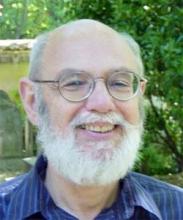Ken kicks of the show with the week’s central question: can philosophy be used a kind of therapy? John is quick to respond. He says that philosophers definitely need therapy—but philosophers as therapists? He’s not so sure. After all, who really wants to look up from their therapist’s couch and see Nietzsche’s face? Ken laughs, but pushes back: aren’t irrational beliefs—the beliefs philosophy attempts to vanquish—the cause of so much of our unhappiness, anxiety, and fear? And didn’t philosophers like the Stoics preach their philosophy as an actual therapeutic practice? John remains skeptical, but he’s interested enough to continue.
After Natalie Jones provides the week’s Roving Philosophical Report (see below), John and Ken welcome guest David Konstan back to the program. John asks Konstan about what he thinks about the modern phenomenon of the “philosophical counselor”—where philosophers blend their role of thinker with that of therapists. Konstan pulls from his expertise in Ancient philosophy to answer: in the ancient world, he says, there was no border between the role of philosopher and therapist. Rather, philosophers played the role of both. According to Konstan, a few centuries’ ago philosophers decided to get out of the therapy business—and now, as some philosophers “return” to their ancient job as therapists, he says he approves.
The three then spend some time talking about the difference between psychotherapy and philosophical therapy, in a wide-ranging conversation that jumps from Plato to the Epicureans, all the way back to Nietzche. After a short break, they answer phone calls an emails from viewers.
At the end of the program, Ken says that he thinks that philosophy can equip one to see “all dark truths” in the world, and learn how to live bravely in the face them. John remains a bit less optimistic: “I’m with two very cheery and happy philosophers,” he says. “But perhaps I’m a better archetype of the typical philosopher: a morose individual who’s idea of a good time is curling up with a glass of whisky and some dark thoughts from David Hume.”
- Roving Philosophical Report (seek to 6:40): Natalie Jones interviews Claire Lamb, who, in search of help, decided to reach out to someone who could answer life’s questions, rather than attempt to solve her emotional problems. Jones then talks to Lou Marrinoff, a professor of philosophy who started the “philosophical counselor” movement in the 1990s.



